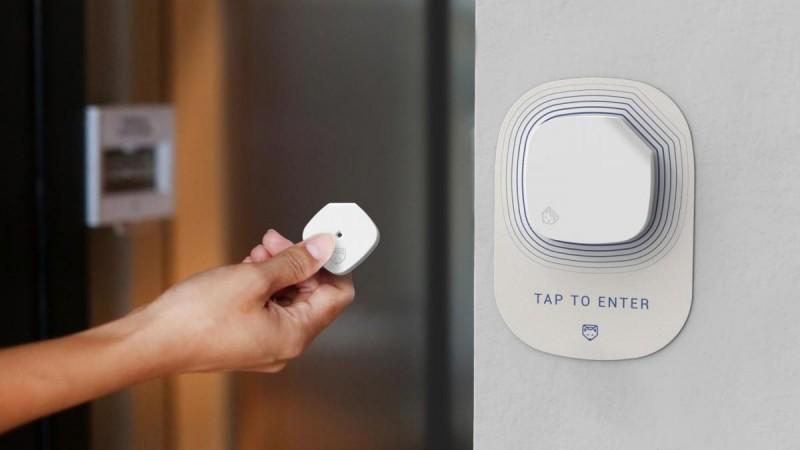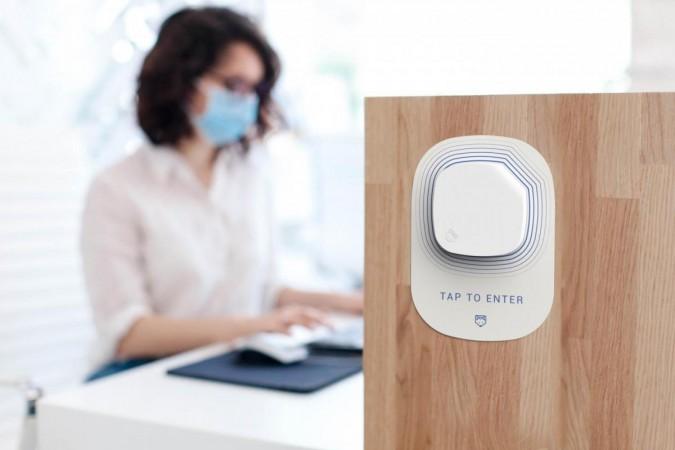Effective treatment of COVID-19 continues to be a hurdle 20 months into the pandemic. However, another challenge requires resolution as well—timely detection of the SARS-CoV-2 virus. The sooner the pathogen is identified (particularly in one's immediate environment), the faster it can be dealt with. Now, scientists have announced the development of a biosensor that can detect the presence of even minuscule amounts of the novel coronavirus and its variants.
Developed by researchers from multiple institutions, the accurate and non-invasive sensor can analyze and inform—within a minute—whether an individual is COVID-free or not before they can enter a workspace. If the person is suspected to have the viral disease, the sensor alerts them to undergo a COVID-19 test and isolate themselves. Currently, a prototype has proven successful and all parties involved in its development are aiming for its commercial release in 2022.
"COVID-19 is not going away any time soon and we need smart solutions to help us detect the virus and contain outbreaks. It is exciting to see our platform sensor technology at the core of this smart new solution for the management of COVID-19 and other respiratory viruses in workplaces, to help protect our frontline workers and the wider community," said Prof. Sharath Sriram, project leader, in a statement.
Detecting COVID-19 in Under a Minute

The 'Soterius Scout sensor' is being jointly developed by RMIT University (Royal Melbourne Institute of Technology); Soterius, an Australian biomedical start-up; MIP Diagnostics, a UK-based company that makes synthetic antibodies; the Burnet Institute, an Australian medical research institute; D + I; and Vestech, an Australian medical innovation firm.
Synthetic nanotechnology-enabled biosensors developed by scientists from RMIT are utilized by the sensor. It also employs flexible microelectronics along with the nanotech components that attach to targeted viruses; thereby, facilitating specific detection and averting false positives.
The functioning of the sensor is rather simple. Viral particles that are deposited on the sensor are detected within one minute. This result is communicated to a card reader that users swipe to gain access to areas, or to a smartphone. When an individual is found to have COVID-19, the sensor intimates them, and asks them to undergo COVID-19 testing and self-isolate. Importantly, viral particles landing on the sensor become chemically bound to it. Thus, it is safely trapped within it.
Identifying Multiple Variants

According to the developers of the 'Soterius Scout sensor', every device can be programmed to identify several variants making use of a sensor array. "Importantly, one sensor can detect up to 8 viral strains and our technology can be easily adapted to detect new variants or novel viruses as they emerge," explained Dr. Alasdair Wood, co-founder of Soterius.
Dr. Wood also stressed the portability and versatility of the device. He stated that the new 'scout' is unlike any other existing sensors that are energy-intensive, bulky, and capable of detecting only one kind of virus. "Our biosensor is so small it can fit on a personal fob card and it's easy to use - you just need to swipe your card over a reader at checkpoints," highlighted Dr. Wood.

Preliminary tests conducted with the prototype of the sensor have found that it can detect the spike protein fragments of the SARS-CoV-2 virus with high accuracy and without any false positives. Also, despite an individual being asymptomatic, the new sensor can detect COVID-19. Based on the results of the trials, the researchers are aiming to scale the device for the detection of pathogens that cause other respiratory illnesses such as MERS and influenza.
Initially, the biosensor is set to be made available to hospitals and will be manufactured in Australia. Future applications of the technology may soon include high-traffic and essential worker settings such as airports and schools, quarantine hotels, and assisted living facilities for the elderly.

















